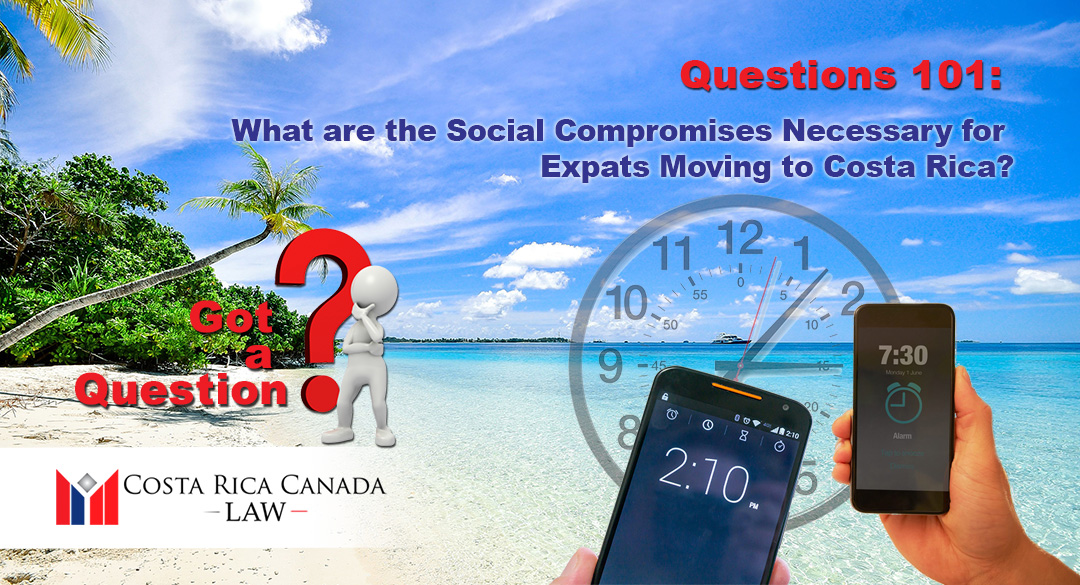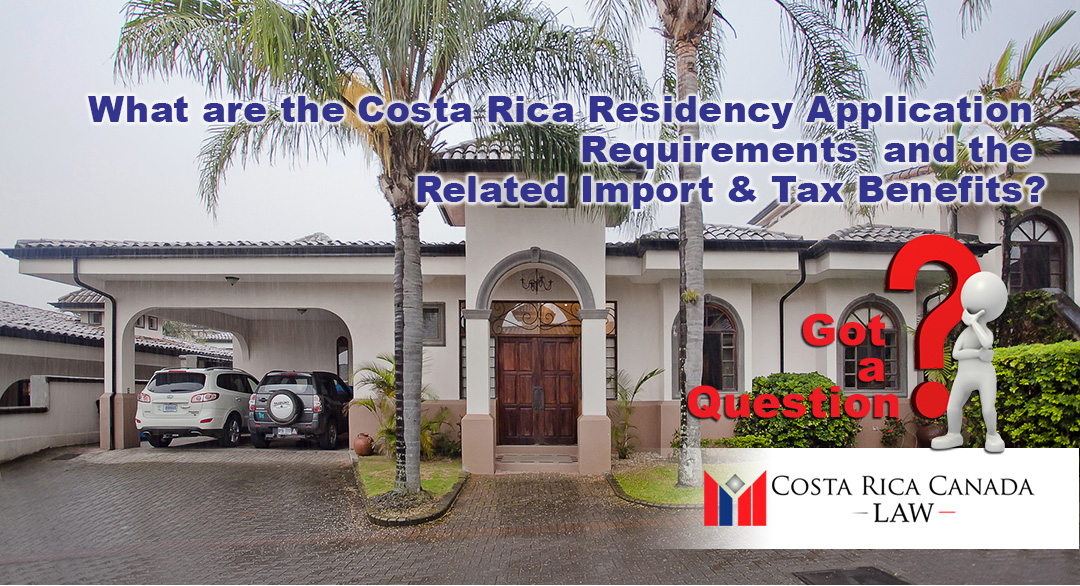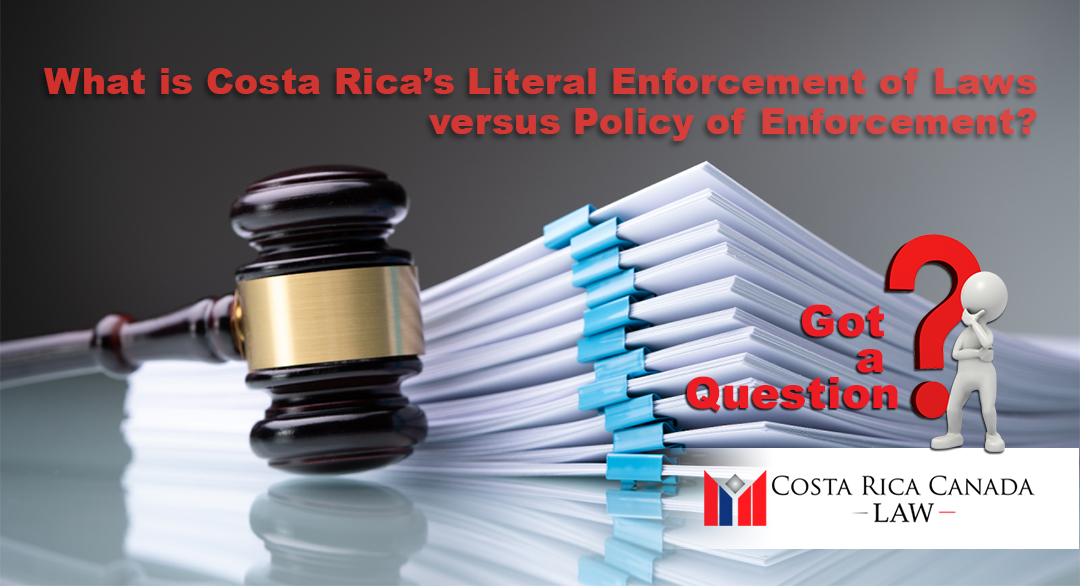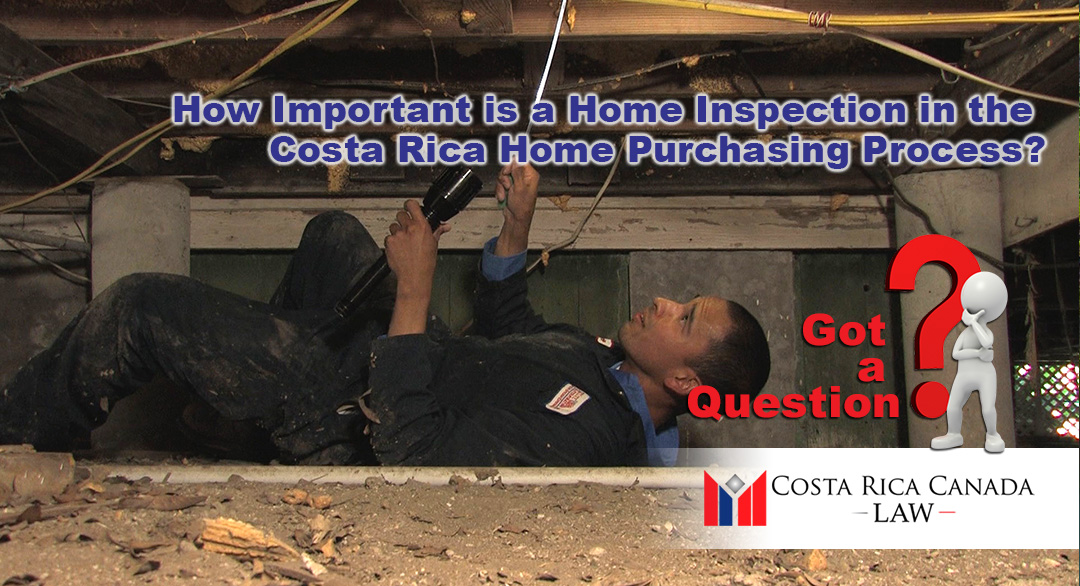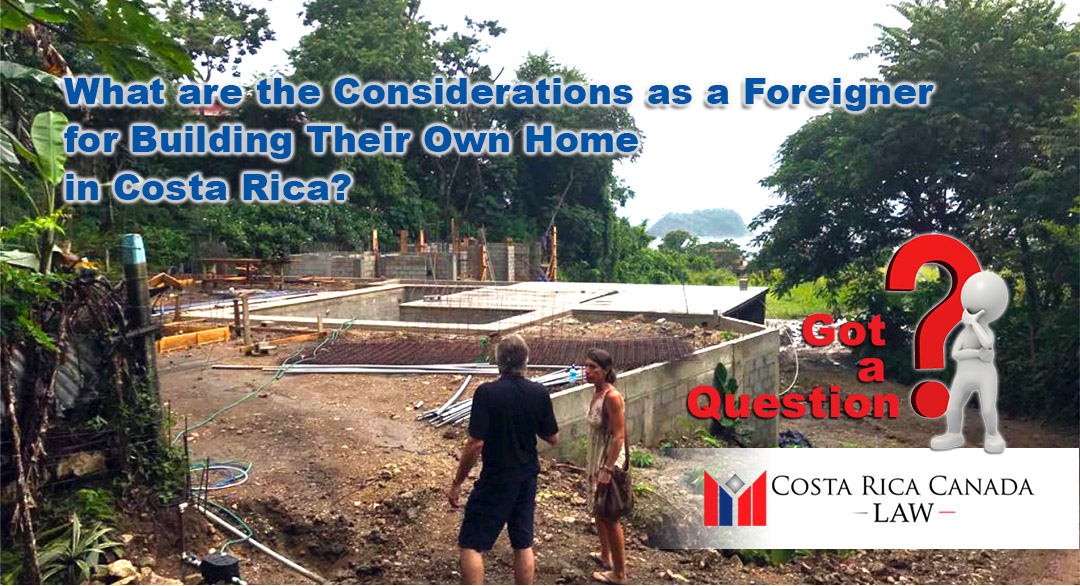What are the Social Compromises Necessary for Expats Moving to Live in Costa Rica?
This blog would be more apt under a “social” rather than a “legal” due diligence category. Still, I believe that after twenty-seven years of living in Costa Rica, a reflection on these social compromises is necessary to complete the legal due diligence investigation required of any ex-pat moving to live in Costa Rica. In most cases, the consideration of the logistics of the move will overshadow the consideration of the fact of the cultural change to be experienced. This is particularly true of U.S. and Canadian ex-pats, who make up the greatest number of such ex-pats and face the biggest challenges to socially adapt. Moving to live in a foreign country is a life-changing event and an expensive undertaking. It is imperative that an ex-pat contemplating such a move be complete in both their legal and social due diligence inquiries. The integrity of the party providing the expat with such advice must also be of serious consideration, as to any over-riding self-interest, or other conflict of interest which may exist with the advice giver.
I first visited Costa Rica on vacation in 1993. I was practicing law in Victoria, B.C. at the time, but I knew then, that I wanted to arrange my affairs, to make the move to live in Costa Rica. In August of 1998, I made the move and I have lived in Costa Rica ever since, visiting Canada on vacation every few years.
As statistics show, a large percentage of expats return to their home country within two years of moving to live full-time in Costa Rica, for the significant reason of not being able to “fit in” socially speaking. Obviously, other reasons may also exist for this to occur.
Costa Ricans are generally a polite, friendly, and pacifistic group of people, however, the social, legal, and cultural differences are strikingly different indeed, from those of the Home Country of most ex-pats who would read this article. The “Pura Vida” lifestyle, while being a laudable concept, does come with a price, and pragmatic decisions must be undertaken by expats to avoid unnecessary and disappointing circumstances arising.
The Differences in Legal Structure
Most ex-pats will come from jurisdictions where English Common Law is the Legal System utilized. This system of laws originates from England and is the dominant system of laws utilized by the U.S., Canada, and British Common Wealth countries. It is a system composed of Statutory and Judge-made laws, which allows for an evolution of the law based on societal changes over time, as are interpreted by Judges in Court, producing a “common thread” of legal jurisprudence respected by the Courts as a whole.
In Costa Rica, as in all of Latin America, Civil Law (Roman Law) is the Legal System that has been adopted, for the most part from the Mother Country of Spain. This Legal System is considerably different in its approach to delivering justice. Each area of the law (eg. Criminal, Family, etc.), is codified into various legal declarations in the form of articles, which are applied by a Judge to any fact situation presented in Court, largely without reference to any established jurisprudence. Case precedents producing a common thread of legal jurisprudence do not form an integral part of the judicial process as in English Common Law. This allows for a greater opportunity for external influences to affect a judicial outcome and corruption is an issue.
The Differences in Social Structure and Social Norms
Although there are a plethora of social and cultural differences that can be observed, understanding a few main ones can be very helpful.
Roots: Costa Rica largely has a “class-driven” social structure. The political power rests in an elite class comprised of old family money and associations dating back to Costa Rica’s beginnings as a Republic two hundred years ago. This has resulted in a de-facto Oligarchy being created. Upward mobility between classes has been slow to evolve over the years. People from the poorer class levels of society, particularly in rural areas, have difficulty making eye contact with the elites when engaged in conversation, being cowed into humility. The status quo between the social classes continues by design.
Thought Process: Logical thinking takes on a new form, as does problem-solving. Problem-solving is, more often than not, performed on a “reactive” rather than a “proactive” basis. The logic of solving a problem before one suffers the negative consequences has yet to be realized in Costa Rica Society. Expats will find themselves questioning what will be perceived as an awkward approach used by Costa Ricans to undertake a particular task, for what would be considered to the ex-pat as a relatively easy and alternative way to proceed, had the same issue arisen in their homeland.
“Tico” Time: Timeliness, either in completing tasks or arriving for appointments on time is also a significant difference to be faced. The assertive reaction by an ex-pat for a Costa Rican to complete a task in the agreed-upon time frame may result in a “stone-walling” response, where nothing will happen. The Costa Rica “work ethic” ranks in importance family obligations and holidays before work, regardless of the importance of the work.
Government and Professional Body Oversight: In comparison to countries such as Canada or the U.S., in Costa Rica, there is substantially less Government and Professional Body oversight through laws, regulation, or otherwise, as to the integrity of the conduct of business transactions and as to the professional conduct of those parties involved in them. In the case of the Real Estate Industry, there is no regulation, licensing, or legislated Professional Body oversight. “Big Brother” is not watching. Even where such written laws and regulations exist in Costa Rica, the Policy or Will to enforce them tends to be weak and ineffective in many cases, unlike Canada or the U.S., where written laws and regulations are enforced essentially on a literal and timely basis. This tends to lead to the production of “grey” areas, in the conduct of business in general. Individuals have a much greater personal responsibility to carry out the due diligence inquiries necessary to ensure that such transactions that they plan to involve themselves in, are being conducted in a proper and professional manner.
My Opinion
There are countless more examples of the legal and social differences that ex-pats moving to Costa Rica will encounter. In general, Costa Rica Society exhibits a more distant relationship with the truth and honesty in its social and legal interactions, than foreigners coming from Countries like the U.S. and Canada would be ordinarily used to experiencing in like circumstances in those Countries. Some foreigners adopt this cultural trait for their own “convenience”. This factor arises from the lack of Government or other Regulatory oversight, or in the circumstances where such oversight is legally provided for, there exists the lack of or inexistence of effective Policies of Enforcement. In short, there is less chance of being held accountable for such behaviour, either socially, or legally.
If you are an ex-pat merely living on an offshore pension, or investment income, and are not involved in business ventures beyond paying monthly living expenses, your requirement to compromise to accept these social, legal, and cultural differences required to integrate into the Costa Rica Societal make-up, will be minimal.
However, to become immersed in Costa Rican Society, from a living and a business point-of-view, will require a significantly greater compromise to be made, to sustain an enduring social integration.

